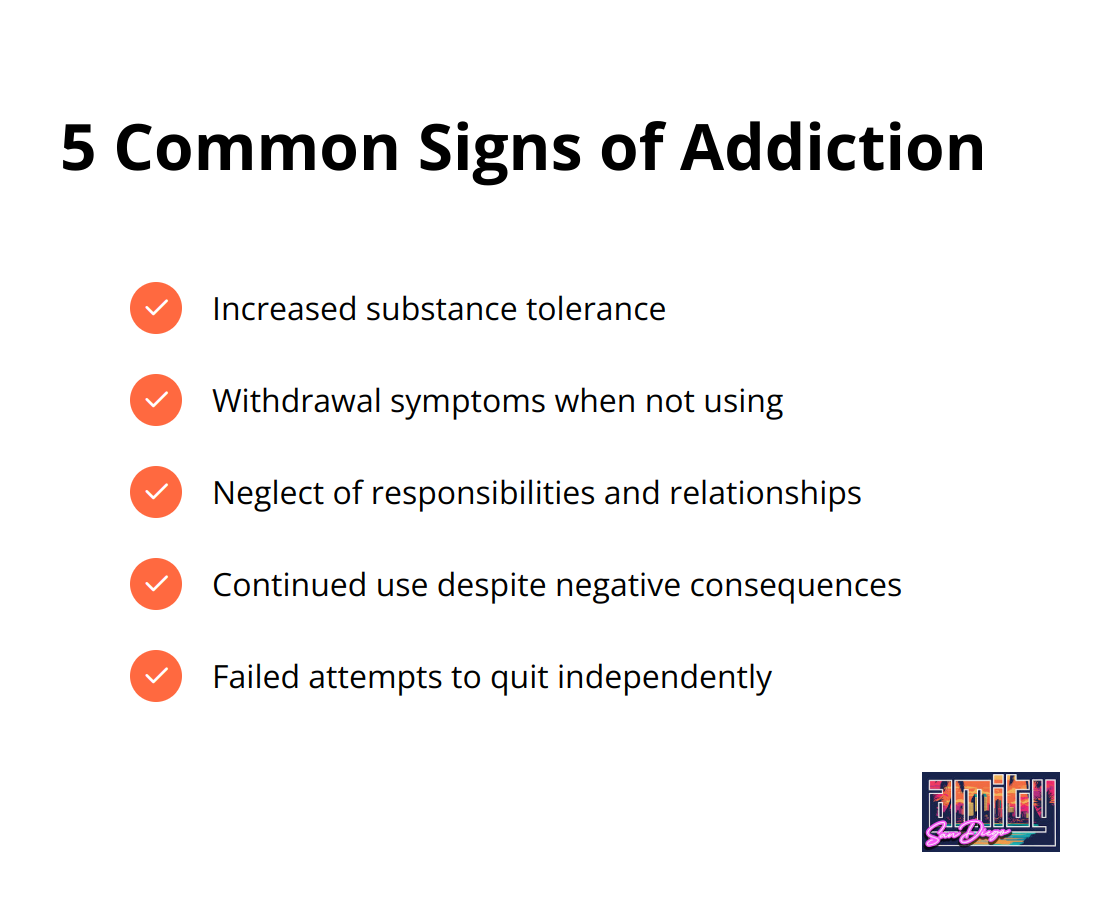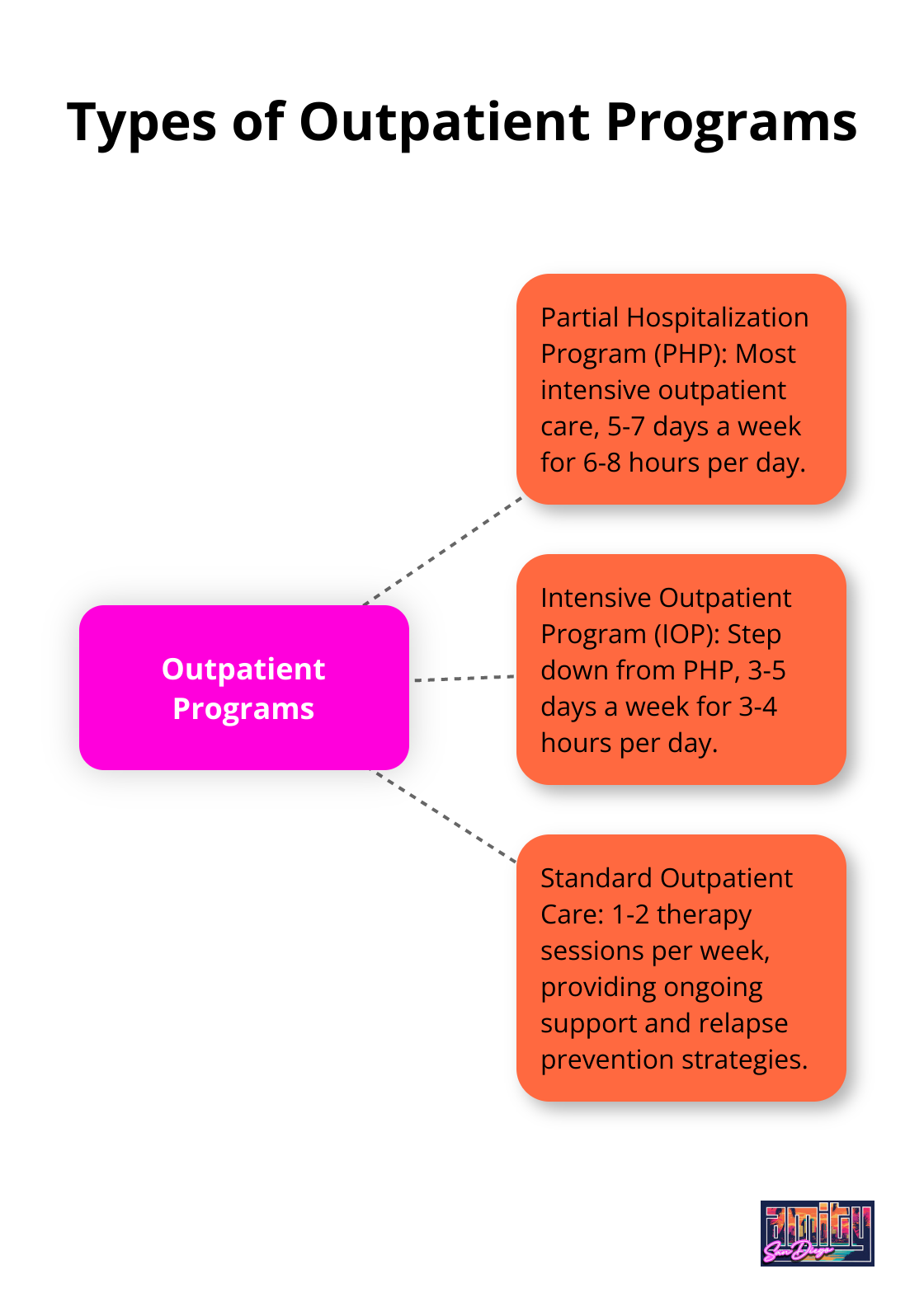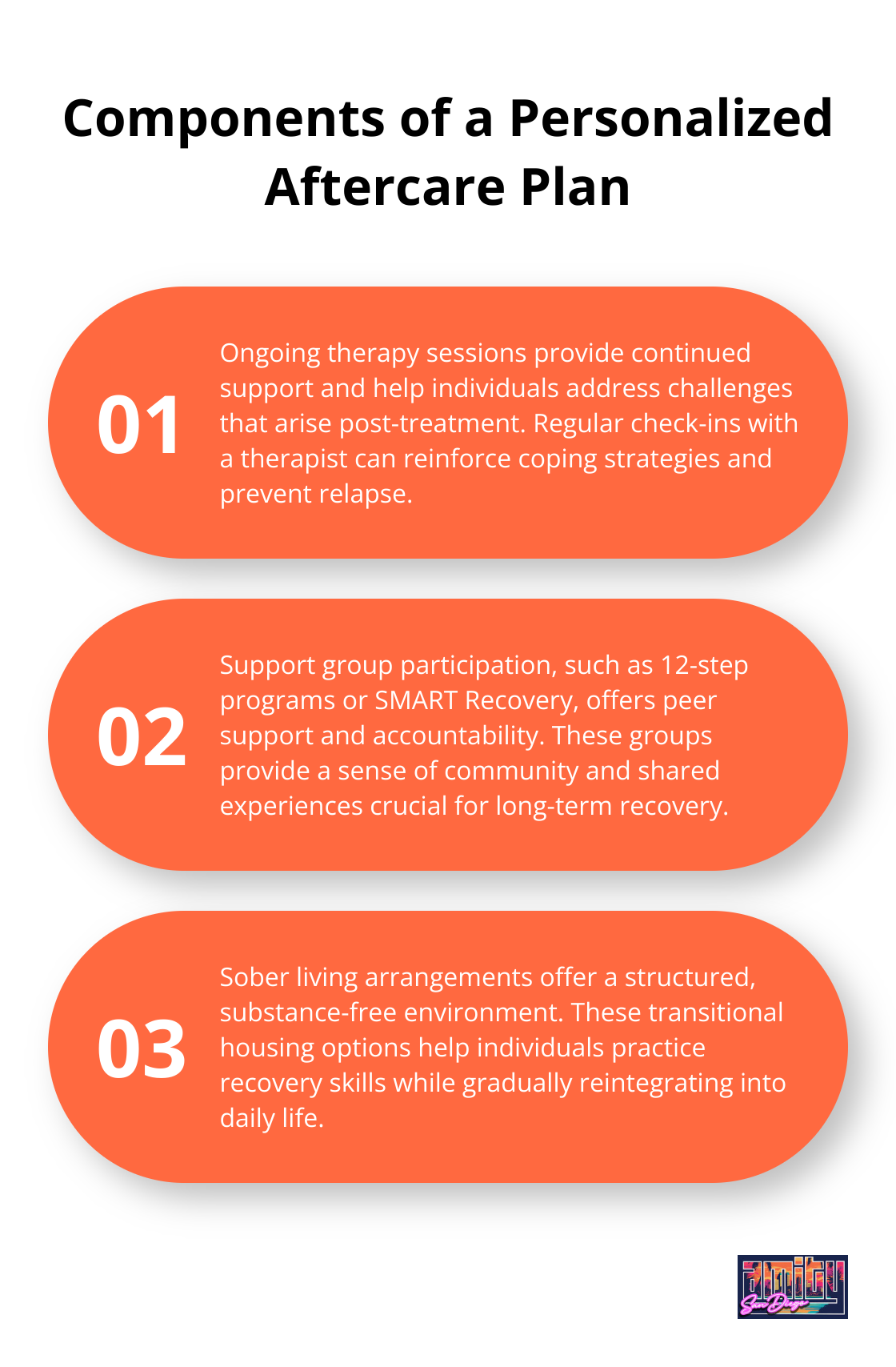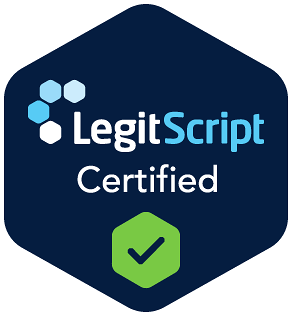Addiction is a complex disease that affects millions of lives worldwide. At Amity San Diego, we understand the challenges individuals face when seeking effective addiction treatment.
Our comprehensive approach combines evidence-based therapies, personalized care, and ongoing support to help you achieve lasting change. This guide will explore various addiction treatment options and key components for successful recovery, empowering you to take the first step towards a healthier, substance-free life.
Why Professional Treatment Is Essential for Addiction Recovery
The Brain’s Response to Addiction
Addiction alters neural pathways, making it difficult to overcome without professional assistance. The National Institute on Drug Abuse reports that drugs can alter important brain areas that are necessary for life-sustaining functions and can drive the compulsive drug use that marks addiction. These changes affect decision-making, impulse control, and stress management.
Identifying the Signs of Addiction
Early intervention plays a key role in successful recovery. Common signs of addiction include:

The presence of these symptoms indicates the need for professional help.
Advantages of Professional Treatment
Professional addiction treatment offers several benefits over attempting to quit alone:
- Evidence-Based Therapies: Cognitive behavioral therapy (CBT) for substance use disorders has demonstrated efficacy as both a monotherapy and as part of combination treatment strategies.
- Dual Diagnosis Treatment: Many individuals with substance use disorders also struggle with co-occurring mental health conditions. Professional treatment addresses both simultaneously for improved outcomes.
- Structured Environment: Outpatient programs provide structure and accountability (crucial elements in early recovery).
- Peer Support: Group therapy and support groups offer invaluable connections with others on similar journeys.
The Impact of Comprehensive Care
The Substance Abuse and Mental Health Services Administration (SAMHSA) reports that individuals who complete a full course of treatment have significantly better outcomes than those who attempt to quit on their own. Professional support equips clients with strategies to identify triggers and prevent relapse long after leaving treatment.
As we explore the various types of addiction treatment San Diego programs available, it becomes clear that professional care offers the best chance for lasting recovery and a brighter future.
What Are Your Treatment Options?
At Amity San Diego, we recognize that each person’s recovery journey is unique. We offer a variety of treatment programs to address diverse needs and circumstances. Let’s explore the main types of addiction treatment programs available to help you make an informed decision about your path to recovery.
Outpatient Programs: Flexibility Meets Support
Outpatient programs strike a balance between structured treatment and personal independence. These programs allow individuals to maintain work, school, or family commitments while receiving regular care. The Substance Abuse and Mental Health Services Administration (SAMHSA) reports that intensive outpatient (IOP) programs for substance use disorders (SUDs) offer services to clients seeking primary treatment or step-down care from inpatient treatment.

Partial Hospitalization Programs (PHP)
PHP provides the most intensive level of outpatient care. Clients typically attend treatment 5-7 days a week for 6-8 hours per day. This level of care suits those who need significant support but don’t require 24-hour supervision.
Intensive Outpatient Programs (IOP)
IOP offers a step down from PHP, with treatment sessions usually occurring 3-5 days a week for 3-4 hours per day. This option works well for individuals transitioning from inpatient care or those who need more support than standard outpatient treatment.
Standard Outpatient Care
Standard outpatient care involves 1-2 therapy sessions per week, providing ongoing support and relapse prevention strategies. This level of care suits those with milder substance use disorders or as a step-down from more intensive treatment.
Inpatient and Residential Treatment: Immersive Healing
For individuals with severe addiction or unstable living situations, inpatient or residential treatment offers a more intensive, immersive experience. These programs provide 24/7 care and support, removing clients from potentially triggering environments.
Short-term residential treatment typically lasts 30-90 days, focusing on stabilization, and intensive therapy. Long-term residential programs can last 6-12 months or longer, offering more comprehensive rehabilitation and life skills training.
The National Institute on Drug Abuse (NIDA) reports that treatment enables people to counteract addiction’s disruptive effects on their brain and behavior and regain control of their lives.
Specialized Programs: Addressing Unique Needs
Many individuals struggling with addiction also face co-occurring mental health disorders. Dual diagnosis programs specifically address these complex cases, providing integrated treatment for both substance use and mental health issues.
Other specialized programs cater to specific populations, such as:
- Gender-specific treatment
- LGBTQ+-focused programs
- Programs for veterans or first responders
- Adolescent and young adult treatment
- Executive or professional programs
These tailored approaches address the unique challenges and experiences of different groups (potentially improving treatment outcomes).
The next chapter will explore the key components that make addiction treatment effective, including evidence-based therapies, and holistic approaches to recovery.
What Makes Addiction Treatment Effective?
At Amity San Diego, we know that effective addiction treatment requires more than addressing substance use alone. It demands a comprehensive approach that tackles the root causes of addiction and equips individuals with tools for lasting recovery. Let’s explore the key components that make addiction treatment truly effective.
Evidence-Based Therapies: The Foundation of Recovery
Evidence-based therapies form the cornerstone of successful addiction treatment. Specialized therapies have been developed to target specific types of substance use disorders: alcohol, opiates, cocaine, and marijuana. We utilize a range of evidence-based approaches, including:
Cognitive Behavioral Therapy (CBT): This therapy helps individuals identify and change negative thought patterns and behaviors associated with substance use.
Dialectical Behavior Therapy (DBT): DBT proves particularly useful for individuals who struggle with emotional regulation and interpersonal relationships. It teaches skills like mindfulness, distress tolerance, and emotion regulation.
Eye Movement Desensitization and Reprocessing (EMDR): This therapy benefits individuals with trauma-related substance use disorders.
Holistic Approaches: Nurturing Mind, Body, and Spirit
Effective addiction treatment addresses the whole person, not just their substance use. Holistic approaches complement traditional therapies by promoting overall well-being. Some key holistic elements include:
Nutrition counseling
Fitness programs
Mindfulness practices
Aftercare and Relapse Prevention: The Key to Long-Term Success
Recovery doesn’t end when formal treatment concludes. Effective addiction treatment includes comprehensive aftercare planning and relapse prevention strategies. Three of the most common relapse prevention strategies have included therapy and skill development, medications, and monitoring. A personalized aftercare plan may include:

Addiction treatment San Diego programs that incorporate these evidence-based components offer the best chance for lasting recovery and improved quality of life.
Final Thoughts
The decision to seek addiction treatment marks a transformative moment in life. At Amity San Diego, we recognize the unique nature of each individual’s recovery journey. Our personalized treatment plans address specific needs, challenges, and goals to provide comprehensive support.
We view the act of seeking help for addiction as a demonstration of strength. Our team of experts offers evidence-based therapies, holistic approaches, and ongoing care to facilitate lasting change. We provide a safe, non-judgmental environment where recovery can begin with confidence.
Addiction treatment San Diego programs at Amity San Diego include Partial Hospitalization (PHP) and Intensive Outpatient (IOP) options. These programs fit various lifestyles while offering necessary support. Contact us today for a confidential assessment and take the first step towards a healthier future.



